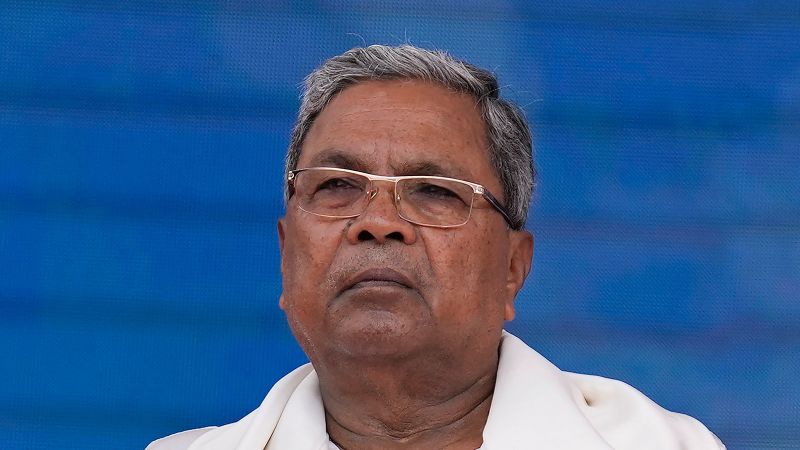In a recent incident that has drawn attention to the reliability of automated translation tools, technology giant Meta has issued an apology following a significant error affecting one of its platforms. The issue arose when an auto-translation feature mistakenly reported the death of Indian politician Siddaramaiah, the chief minister of the southwestern Indian state of Karnataka. This mishap occurred after Siddaramaiah’s Instagram post, which was originally written in the local Kannada language, was inaccurately translated, leading to confusion among users regarding his status.
The post in question was intended as a tribute to the late actress B. Saroja Devi, and it was shared on multiple social media platforms including Instagram and Facebook. Siddaramaiah expressed his condolences and paid respects to the late actress, yet the automatic translation provided by Meta’s system convoluted the intended message. Instead of a respectful homage to a deceased artist, the system suggested that Siddaramaiah himself had passed away. The translation inaccurately read, “Chief Minister Siddaramaiah passed away yesterday multilingual star, senior actress B. Took darshan of Sarojadevi’s earthly body and paid his last respects,” as reported by the news affiliate News 18.
In response to the backlash, a spokesperson from Meta informed the Press Trust of India that the issue causing this erroneous translation had been rectified. The representative confirmed that the company was sorry for the incident and acknowledged the potential implications of such a mistake. Furthermore, the chief minister publicly criticized the reliability of the auto-translation tool, which he described as “dangerous.” He expressed his concern that such negligence from technology companies could undermine public understanding and erode trust in digital communications.
Siddaramaiah did not stop at mere criticism; he also provided evidence of communication with Meta regarding the issue. His office sent an email to the tech company expressing a serious concern about the inaccuracies prevalent in the auto-translation feature across various Meta platforms, particularly on Facebook and Instagram. The subject line of the email read “Urgent Request to Address Faulty Auto-Translation of Kannada Content on Meta Platforms.” In it, the office urged Meta to temporarily suspend the auto-translation tool for Kannada content until its accuracy could be guaranteed. They also requested collaboration with experts in the Kannada language to enhance the translation feature’s performance.
Kannada, the official language of Karnataka, boasts a substantial number of speakers—approximately 45 million who claim it as their first language, along with an additional 15 million who use it as a second language, as per the most recent data from the early 2010s. Given its significance, the mishaps in translation are not merely annoying; they pose serious risks. For instance, improper translations could lead to misunderstandings related to public communications or official statements, particularly when they originate from influential political figures like the Chief Minister.
In his emails, Siddaramaiah labeled Meta’s translations from Kannada to English as “frequently inaccurate and, in some cases, grossly misleading.” He elaborated on the dangers posed by inaccurate translations to public understanding, indicating that many users may not be aware that they are reading automated content that is not indicative of the original message.
The auto-translation of Siddaramaiah’s Instagram post remains problematic even after the response from Meta. As of the latest reports, it continues to read inaccurately, which demonstrates that the issue may not be entirely resolved. CNN has reached out to Meta and Siddaramaiah’s office for further remarks on this ongoing situation. Notably, this incident follows a pattern of translation and content moderation errors within Meta, recalling a previous incident when the company had to apologize for a technical fault that showcased inappropriate graphic content to certain Instagram users. The growing concern around reliance on technology for communication underscores the need for greater accountability and improved tools to prevent potentially dangerous misinformation.











